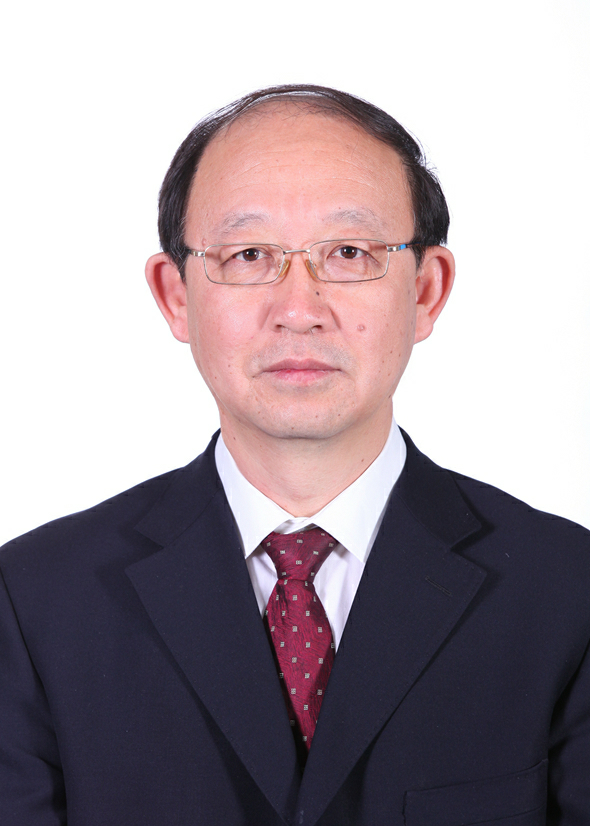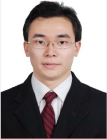Keynote Speaker Ⅰ

Haikuan Zhao
National Railway Administration of the People's Republic of China, China
To be updated... Please wait patiently
Keynote Speaker Ⅱ
)
Maria Pia Fanti
IEEE Fellow
Polytechnic University of Bari, Italy
Speech Title: Machine learning and deep reinforcement learning applied in different fields
Abstract: Machine learning (ML) and deep reinforcement learning (DRL) have the potential to bring about significant impacts in automation across various industries and domains. The talk will explain how ML and DRL techniques can be applied in different automation fields: automotive, traffic management and structural health monitoring. Moreover, in each application the role of the simulation is of basic importance for training the agents. Some case studies will be presented in different application areas.Autonomous braking systems based on an intelligent agent trained with DRL can interact with the environment, collect data and react by controlling the vehicle speed when uncontrolled events require an action. DRL approaches are used for efficiently handling by intelligent traffic lights road traffic in road intersections where priority issues are important and autonomous vehicles are involved. Innovative methods based on ML tools are used for detecting damages in steel truss railway bridges to classify raw strain multivariate time series data.
Bio: Maria Pia Fanti received the Laurea degree in electronic engineering from the University of Pisa, Pisa, Italy. She was a visiting researcher at the Rensselaer Polytechnic Institute of Troy, New York, in 1999. Since 1983, she has been with the Department of Electrical and Information Engineering of the Polytechnic University of Bari, Italy, where she is currently a Full Professor of system and control engineering and Chair of the Laboratory of Automation and Control. Her research interests include management and modeling of complex systems, such as transportation, logistics and manufacturing systems; discrete event systems; Petri nets; consensus protocols; fault detection. Prof. Fanti is IEEE fellow and has published more than 340 papers and two textbooks on her research topics.
Keynote Speaker Ⅲ

Zaigang Chen
Southwest Jiaotong University, China
Speech Title: Locomotive Drive and Transmission System Dynamics
Abstract: Large axle loads, extended train sets, high-speed operations, and dense traffic have emerged as pivotal trends in railway transportation. However, the engineering advancements in this field have already transcended the boundaries of conventional science. A decade-long, in-depth study was conducted, focusing on the dynamic behaviors and evolution rules of the drive and transmission system in railway locomotives under complex line and operation conditions. A comprehensive locomotive-track coupled dynamics model was established, taking into account the drive and transmission systems along with the control system. The effect of the drive and transmission system on the dynamic characteristics of the vehicle system was thoroughly investigated. Furthermore, the electromechanical coupling mechanism of the drive and transmission system of the locomotive under complex internal and external excitation was explored. In addition, the generation mechanisms, operational mechanisms, and evolutionary laws of various typical faults in critical components were explored. The research achievements perfected the calculation method of the internal dynamic excitation in drive and transmission systems and further expanded and enriched the theoretical system of the vehicle-track coupled dynamics system. Besides, the research achievements have applied in the dynamic design of the drive units of a high-speed train, the operation and maintenance of the heavy-haul locomotive, and the optimized design of the mountain rack train. Additionally, theoretical guidance has been proposed for the optimization design, fault diagnosis, and intelligent operations of key components in traction power transmission systems for rail vehicles.
Bio: Zaigang Chen, born in 1984, is a full professor and currently works at State Key Laboratory of Rail Transit Vehicle System, Southwest Jiaotong University, China. He does research in railway vehicle system dynamics, mechanical transmission dynamics, and fault diagnosis. He received more than 20 research programs such as the National Natural Science Fundation programs and the National Key R&D Program of China. He has published 1 academic monograph and more than 130 academic papers in authoritative and well-known journals and conferences. Among them, there are more than 90 SCI papers (including 5 ESI highly cited papers) and more than 30 EI papers. These achievements have been successfully applied for solving the dynamics problems of the transmission system in the key equipment. Due to the good contributions, the applicant has been awarded the first prize of Chongqing Natural Sciences Award (ranked 2nd), the second National Prize for Progress in Science and Technology (ranked 9th), and the youth Science and Technology Award of China Vibration Engineering Society. He is also the council member of China Vibration Engineering Society, and the deputy director of the Committee of Young Scientific and Technological Workers of China Communications and Transportation Association.
Keynote Speaker Ⅳ

Xiaolu Cui
Chongqing Jiaotong University, China
Speech Title: Evolution mechanism, control method and intelligent detection of rail corrugation in Mountain City Metro
Abstract: China's urban rail transit network has now surpassed 10,000 kilometers in total length, leading the world. After extensive construction, operating costs are increasing daily, and maintenance issues are becoming more prominent. Among these, the rail corrugation is a typical damage issue in metros. This report focuses on the rail corrugation on complex subway lines in mountainous cities, driven by the demand for safe operation and precise maintenance. The evolution mechanism, control method and intelligent detection of rail corrugation are systematically investigated. Firstly, the intrinsic relationship between the friction self-excited vibration of the wheel-rail system and the feedback vibration of track irregularity under various complicated metros are studied. Then, the phase relation between the wheel-rail friction coupling vibration and rail wear is explored, and the prediction model of rail corrugation is established. Next, the active control method of rail corrugation is proposed from the perspective of the optimization of vehicle-track structure system, and the passive control method of rail corrugation considering the influence of multiple factors is constructed based on the safety evaluation system. Finally, the qualitative identification technology of rail damage in different stages of network is proposed, and the 3D reconstruction method and evaluation technology of rail corrugation are established, which provides the optimization direction for the research direction of intelligent equipment for rail corrugation identification, prediction and evaluation.
Bio: Cui Xiaolu, born in July 1990, professor. She is the director of the Vehicle Department at the School of Mechanical and Electrical Engineering and the head of the Rail Transit Intelligent Maintenance Institute at Chongqing Jiaotong University. She also serves as a member of the Rail Transit System Discipline Technology Committee of the World Transport Conference. Her main research directions are vehicle dynamics and intelligent maintenance, as well as intelligent construction and maintenance robots. She has been selected as BaYu Scholar Young Scholar, Chongqing City Course Ideological and Political Teaching Master, and a core member of the National Huang Danian-style Teacher Team. She has hosted 3 national level projects, including the National Natural Science Foundation Programs, as well as Sub-project of the National Key Research and Development Program, and 12 provincial level projects. She has published more than 60 papers in SCI/EI, including 2 ESI highly cited papers. She has authorized 7 invention patents and has participated in the compilation of a monograph by the Science Press.